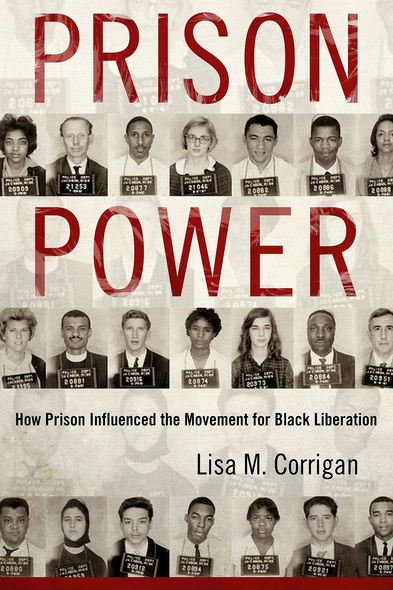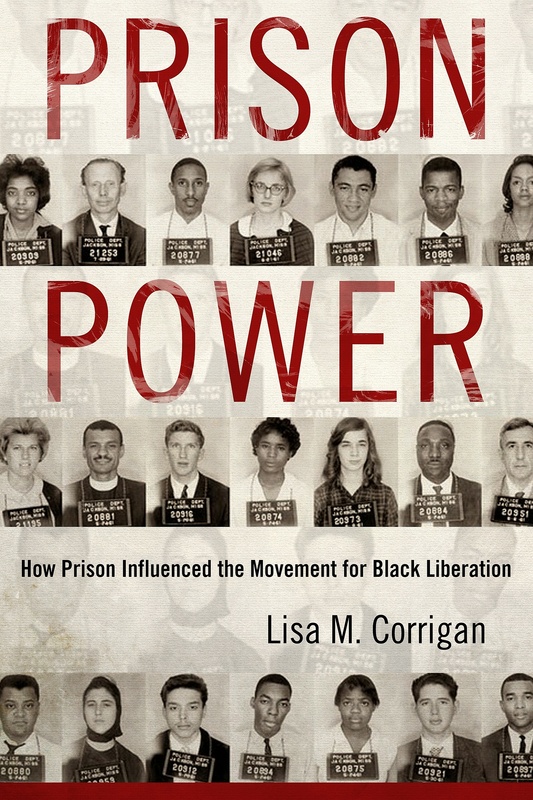
Prison Power
How Prison Influenced the Movement for Black Liberation
Winner of the 2017 Diamond Anniversary Book Award and the African American Communication and Culture Division’s 2017 Outstanding Book Award, both from the National Communication Association
In the Black liberation movement, imprisonment emerged as a key rhetorical, theoretical, and media resource. Imprisoned activists developed tactics and ideology to counter white supremacy. Lisa M. Corrigan underscores how imprisonment—a site for both political and personal transformation—shaped movement leaders by influencing their political analysis and organizational strategies. Prison became the critical space for the transformation from civil rights to Black Power, especially as southern civil rights activists faced setbacks.
Black Power activists produced autobiographical writings, essays, and letters about and from prison beginning with the early sit-in movement. Examining the iconic prison autobiographies of H. Rap Brown, Mumia Abu-Jamal, and Assata Shakur, Corrigan conducts rhetorical analyses of these extremely popular though understudied accounts of the Black Power movement. She introduces the notion of the “Black Power vernacular” as a term for the prison memoirists’ rhetorical innovations, to explain how the movement adapted to an increasingly hostile environment in both the Johnson and Nixon administrations.
Through prison writings, these activists deployed narrative features supporting certain tenets of Black Power, pride in Blackness, disavowal of nonviolence, identification with the Third World, and identity strategies focused on Black masculinity. Corrigan fills gaps between Black Power historiography and prison studies by scrutinizing the rhetorical forms and strategies of the Black Power ideology that arose from prison politics. These discourses demonstrate how Black Power activism shifted its tactics to regenerate, even after the FBI sought to disrupt, discredit, and destroy the movement.
Many locate the massive expansion of the prison-industrial complex and the criminalization of Black and Brown communities in the policies of the Reagan administration. Lisa Corrigan’s fantastic new book turns our attention rightfully to the 1960s and offers us an incredible look at how repression of both the civil rights movement and the Black Power movement laid the groundwork for what is commonly called ‘mass incarceration' today. Corrigan shows the critical role that prisons and imprisonment have historically played in Black liberation struggles and how the actors in those struggles have understood prison and used it to build movements. Through her careful and nuanced readings of the autobiographical prison writings of Black revolutionaries, Corrigan shows us how such writings offered crucial resources for the development of Black identities, political analysis, and critique of the prison-industrial complex. For anyone who wants to understand a longer historical context of police violence and state repression today in relation to Black Lives Matter and its various iterations, Prison Power is absolutely essential reading.
In Prison Power Lisa Corrigan has done a superb job of outlining the interplay between incarceration and the Black Power movement. She details how activists in the civil rights movement were jailed and the effect that incarceration had on them as individuals; how the writings of those prisoners had a significant effect on society and the Black movement; and the history of Black opposition in the United States. She discusses significant events in the civil rights movement in the United States and the tactics society used to suppress that movement. Corrigan analyzes the writings of three significant writers, H. Rap Brown, Mumia Abu-Jamal, and Assata Shakur, detailing how their writings construct Black Power in ways that undermine the credibility of the prison-industrial complex and make Black Power relevant today. Lisa Corrigan has provided fresh insights into writings that have not been adequately explored by scholars. Her excellent study provides insights into the state of society in the United States in 2016 as well as in the 1960s, and it should be read by those interested in the civil rights movement, social protest, vernacular language, and writings from prison.
Lisa M. Corrigan is associate professor of communication, director of the gender studies program, and affiliate faculty in African and African American studies and in Latin American studies at the University of Arkansas. She is author ofBlack Feelings: Race and Affect in the Long Sixties, published by University Press of Mississippi.




